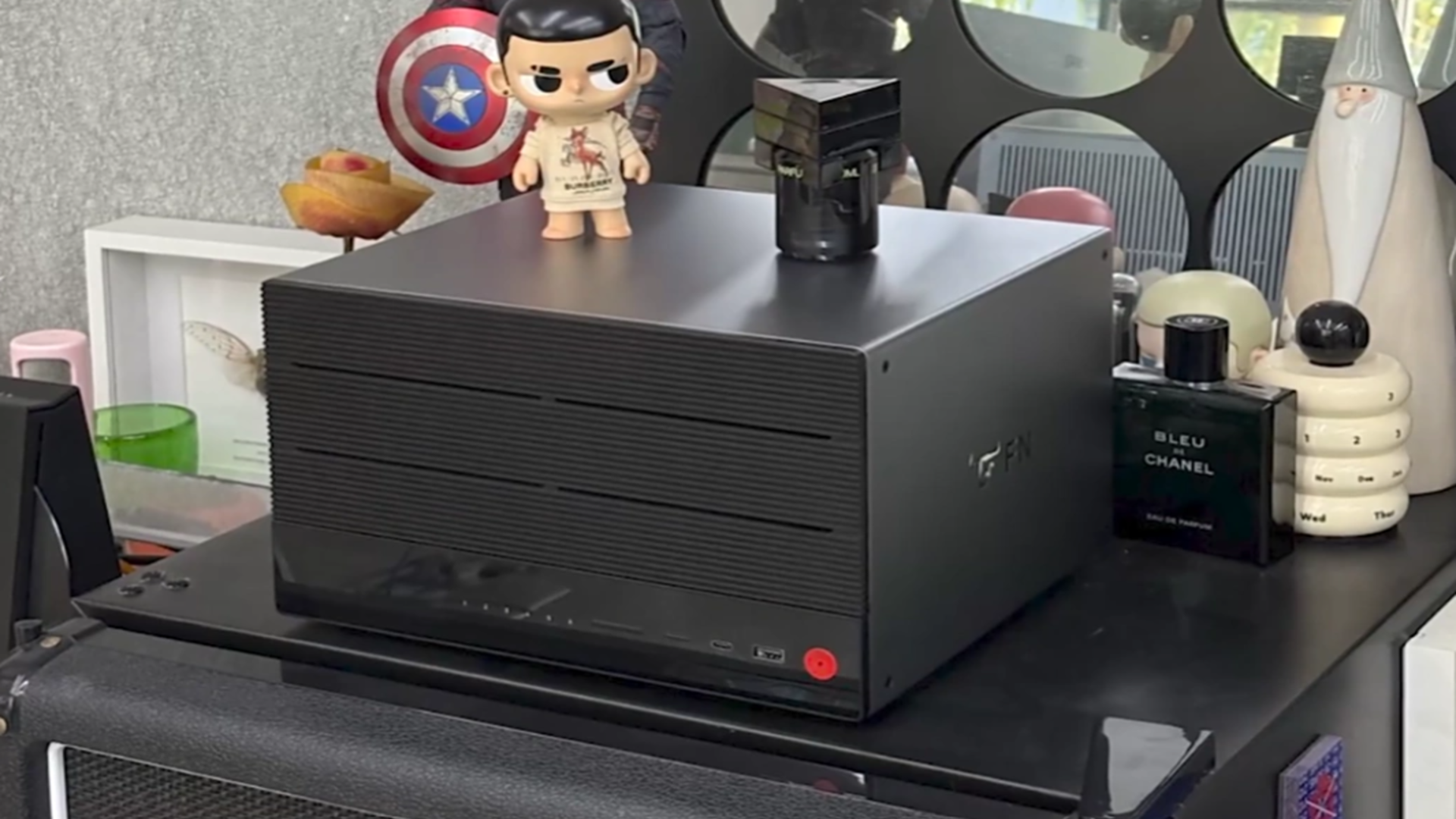This NAS has an integrated UPS and can accommodate more than 180TB of storage, as well as a memory card - but I wonder how much it will actually cost
180TB isn’t odd, but the Integrated UPS may be a game-changer

- Feiniu NAS integrates UPS to tackle abnormal outages that threaten critical data
- 6-bay version expected in October, and 4-bay model to come later this year
- The NAS includes USB-C, USB-A, and SD card slot connectivity
Feiniu has previewed a new NAS system which it claims will address one of the most persistent causes of data corruption.
The Chinese manufacturer revealed its upcoming models will integrate an Uninterruptible Power Supply (UPS) as standard.
It also stated this device will have a 6-bay model, which will launch in mid-October 2025, and a 4-bay model expected to arrive later this year.
Integrated UPS for data protection
Feiniu says that abnormal power outages frequently lead to NAS data loss, which in many cases is not discovered until long after the damage has occurred.
By including a UPS in its system, the NAS will continue running briefly after a power interruption, allowing the drives to shut down safely and protecting stored data.
Such a design may distinguish the device from even the best NAS currently available, although its real-world effectiveness remains unproven until it is tested.
The 6-bay NAS previewed by Feiniu features a horizontal design with gray-painted sides, a black front panel, and the company’s "fn" logo.
Sign up to the TechRadar Pro newsletter to get all the top news, opinion, features and guidance your business needs to succeed!
The upper section includes a grille for drive access, while the lower portion has a glossy finish with a red power button.
Connectivity options are on the right side of the device and include USB-C, USB-A, and an SD card slot for removable storage.
The presence of a memory card slot broadens the options for users who may want a system that offers more external storage.
Feiniu’s founder, Zhu Ting, also hinted the new 6-bay model will accommodate more than 180TB of total storage, depending on the drive sizes used.
This capacity aligns it with the upper end of consumer-grade and small business NAS devices.
The product will be offered in both standard and Pro versions, with claims of being “highly playable” and containing “surprises.”
However, such descriptions leave plenty of ambiguity, and no clear specifications have been confirmed regarding performance, supported file systems, or power efficiency.
Competing enterprise devices already deliver very large capacity (over 1PB), advanced RAID configurations, and snapshot technologies, although most lack an integrated UPS.
Therefore, Feiniu will likely bank on its UPS and other “surprises” to sell this device.
Currently, there is no official information about the price of this device, which makes its market positioning uncertain.
However, brand recognition may influence expectations, and cost remains the most unpredictable factor.
Via ITHome (originally in Chinese)
You might also like
- These are the fastest SSDs you can buy right now
- Take a look at some of the best external hard drives available
- Adata's latest SSDs highlight a growing trend in mobile storage but can't hide a sobering reality

Efosa has been writing about technology for over 7 years, initially driven by curiosity but now fueled by a strong passion for the field. He holds both a Master's and a PhD in sciences, which provided him with a solid foundation in analytical thinking.
You must confirm your public display name before commenting
Please logout and then login again, you will then be prompted to enter your display name.